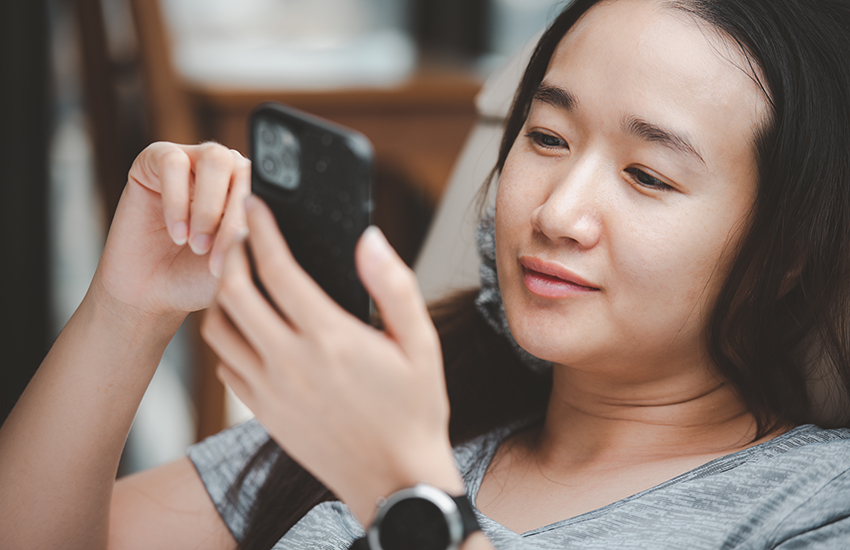Why travellers prefer Blue Cross
- Canada's #1 travel insurance brand and recognized worldwide
- Over 75 years of expertise in insurance
- $5 million travel insurance coverage, with or without deductible
- Flexible and affordable travel insurance solutions
- Free quote available online
- Travel assistance available 24/7 for any emergency, anywhere you travel

How to use social media to Help – not harm – your mental health
Published on: May 5, 2021
From FOMO to sleep issues, we all know that social media poses a minefield of potential mental-health hazards. However, that’s only part of the picture. Depending upon how you use these platforms, they can also enhance wellness. Here are some tips from Toronto-based psychologist Nicole McCance about how to avoid the pitfalls and enjoy the perks.
Cultivate a sense of connection
If there’s one thing the pandemic has taught us about social media, it’s that it can be invaluable in helping us feel more connected to others – especially when life is tough. “For instance, let’s say you see a post from a parent who is sad that her kids haven’t been able to see their grandparents in a long time,” says McCance. “If you’ve been struggling in a similar way, this will help you feel less alone.” Social media can also make it easier to maintain contact with friends, seek support, offer a kind word to someone or plan and attend social gatherings (virtual or in-person).
Find inspiration for fun or meaningful activities
When you’re feeling down or aimless, social media can also provide practical inspiration. “[During the recent lockdowns,] I found myself asking more than ever, what can I do today?” says McCance. “But then I’d go on social media and see a recipe or a painting, or somebody doing indoor gardening.” Whether or not those specific activities appeal to you, she adds, “there are all kinds of cool ideas in circulation that are inspiring people to engage in a new hobby and that boosts their mood.”
Check in with yourself
A lot of the potential downsides of social media stem from comparing yourself to other people. This unhealthy thought habit can leave you feeling insecure, especially since a lot of users portray their lives through an unrealistic lens. “I know it’s hard not to make comparisons, because that’s just what we tend to do as human beings,” says McCance. “So do a check-in with yourself every few minutes. Be mindful and ask yourself, am I feeling stressed? Jealous? Inferior? If so, just get off.” She also emphasizes that although each app comes with default settings, you can take control over what you’ll see: feel free to filter out anyone who’s making you feel bad and to focus your feed elsewhere instead.
Seek out helpful information
McCance’s psychology clinic is one of many that offer mental-health facts, encouragement and general advice that you can discover on Facebook and Instagram. A web-browsing session is not equivalent to a therapy session, but it can offer some value. “Typically, to sit down with me or another mental-health professional can be expensive, especially if you don’t have coverage,” McCance points out. “But this way, you can get some of the goods for free – and from the comfort of your own couch.” When choosing whose information to trust, look for medical centres, research centres, reputable companies or people with regulated credentials such as psychologists or registered psychotherapists.
Enjoy a temporary distraction
In the long term, bottling up your negative thoughts and feelings isn’t ideal for mental health, McCance says. But if you just need to take your mind off things for a little while, browsing adorable dog videos or zoning out with the latest updates from your friends can help you get through the day. “Go look for some uplifting feeds to follow,” suggests McCance. “There are so many places on social media where you can go just to have a laugh and feel good.”
Social media use affects a lot of people negatively, but a mindful approach lowers the risk of becoming one of them. Try monitoring how much time you’re spending on these sites, what you do while you’re there and how those factors make you feel. Getting to know yourself in this way can help you develop habits that enrich – rather than endanger – your quality of life.